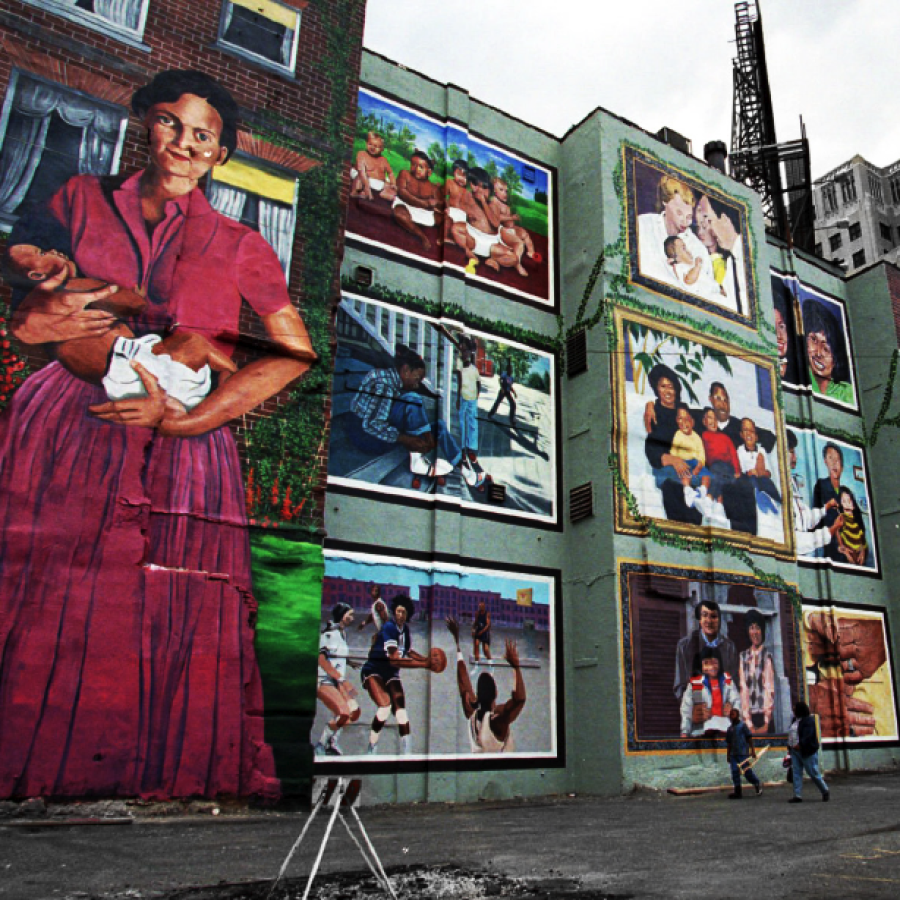Transformative Justice Infrastructure Fellowship
PolicyLink, the Communities First Infrastructure Alliance, and Race Forward’s Government Alliance on Race and Equity are excited to announce a 2024 Transformative Justice Infrastructure Fellowship for public sector leaders who play strategic roles in embedding equitable approaches to local infrastructure investments.
In its second year, the Transformative Justice Infrastructure Fellowship will support a cohort of 12 infrastructure-related public sector leaders who embody practices of systemic change and transformation in the transportation, water, housing, planning, and environmental sectors. We believe that collectively, as public sector practitioners and racial equity organizations, we have the opportunity to put communities first — to uplift the best community leaders and ideas — and give them the investment needed to turn possibility into reality.
We sought out government practitioners who were leading the way by actively working to advance racial equity and supporting the implementation of transformative infrastructure related projects, programs, and processes. Most are mid-career practitioners who are applying these approaches and proactively addressing historical and structural inequities in their work. They are strong in their own racial equity, justice, and liberation journeys, and are all working to incorporate a racial equity and power analysis into their daily work. Our democracy has systematically incentivized underinvestment and disinvestment in low-wealth and Black, Indigenous, People of Color communities, and we hope to help change this. The path towards healing and justice must start with building power across low-wealth and Black, Indigenous, and People of Color communities first.
The fellows will work together in 2024 to lift up what works, strengthen their own alignment around the equitable implementation of federal infrastructure dollars, and will be provided with holistic support to build capacity and support their ongoing leadership. Through the work of our organizations, we know that across the country, governmental jurisdictions are making a commitment to achieving racial equity, focusing on the power and influence of their own institutions, and working collaboratively in partnership with frontline communities.
The United States is currently experiencing a once-in-a-generation wave of infrastructure investment. A historic surge of funding — including the $1.2 trillion Infrastructure Investment and Jobs Act (IIJA), $437 billion from the climate portion of the Inflation Reduction Act (IRA), and $1.9 trillion in flexible discretionary funding from the American Rescue Plan Act (ARPA) stimulus package — presents an enormous opportunity to embed community-led solutions, justice, and climate priorities in US infrastructure investments. To meet this moment, racial and climate justice advocates across the country are working to ensure the implementation of these funds centers the needs and aspirations of communities and empowers them to direct funding to community-identified and led projects.
This Fellowship is specifically designed to enhance coordination for the equitable Implementation of IIJA and IRA program funds across government and community- based organizations, and will provide opportunities to connect government practitioners to geographically relevant frontline community-led projects and organizations. We believe that local and regional governments have the ability to implement policy change at multiple levels and across multiple sectors to drive larger systemic change.
A critical part of this generation’s work is to build new infrastructure — accessible transportation, clean energy, climate-resilient cities and towns, broadband access, good jobs — that serve all of our communities. This Fellowship is just one of the ways our organizations are working to help guide government leaders at all levels in this undertaking, which includes the recently developed set of Infrastructure Standards, precipitated by the unprecedented influx of government funds via IIJA and IRA.
The Fellowship will be guided by the Communities First Infrastructure Alliance core set of principles, which state that we all commit to:
- Invest in People
- Proactive Collaboration
- Center Community Wisdom
- Honor Self-Determination
- Practice Responsiveness & Accountability
- Bridge Integrative Pathways
- Repair Past Harm
About the Fellows
The selected fellows are mostly mid-career practitioners who are leading with transformative justice models, by actively working to advance racial equity in the implementation of infrastructure-related projects, programs, and processes. These fellows are already strong in their own racial equity, justice, and liberation journey, and are seeking ways to collaborate on new approaches to infrastructure decision-making that center on proactively addressing historical and structural inequities.
The fellows will work together in 2024 to lift up what works, strengthen their own alignment around the equitable implementation of federal, state, and local infrastructure dollars, and will be provided with holistic support to build their capacity and support their ongoing leadership. Our goals include enhancing coordination of the equitable Implementation of IIJA and IRA program funds across government and community-based organizations and providing opportunities to connect government practitioners to geographically relevant frontline community-led projects and organizations. We know that with effective coordination and aligning significant leverage and expansion opportunities emerge, setting the stage for the achievement of infrastructure justice and racial equity in our communities.
Through the work of our organizations, we know that across the country, many governmental jurisdictions are making a commitment to achieving racial equity, focusing on the power and influence of their own institutions, and working collaboratively in partnership with frontline communities, and these fellows are part of that movement.
Meet the Fellows
Alexander Kado

Alexander Kado is a Senior Project Manager with the City of Minneapolis, Office of Public Service. He is currently managing two legacy projects that center critical infrastructure-based investments. The first project is the development of George Floyd Square, which is the physical location where George Floyd was murdered in 2020. The second project is the development of the former Minneapolis Police Department’s Third Precinct building, which was set ablaze in a series of riots that occurred shortly after the murder of George Floyd. He manages both projects by centering community needs to ensure tangible outcomes. Alexander has a master's degree in city and regional planning from the University of North Carolina - Chapel Hill, and a bachelor’s degree in mechanical engineering from the University of Minnesota - Twin Cities.
Alyssa Dinberg

Alyssa Dinberg is a dedicated public servant committed to fostering community well-being and economic access to resources. In her role as the Recovery Officer for Local Government Strategic Coordination in Colorado's Governor’s Office of Economic Recovery, Alyssa supports local governments in understanding, applying for, and utilizing federal IIJA and IRA dollars. Her focus on assisting small, disadvantaged communities aims to create more equitable opportunities across the state. Alyssa collaborates with state agencies on strategically accessing funds that contribute to statewide community prosperity. Outside of work, Alyssa finds joy in cooking, creating art, and exploring the mountains. She resides in Lakewood, CO, with a household of rescue animals, including Cora Star the dog, Chance and Willowmena the cats, and Liberace the aquatic turtle, alongside her fiancé Steve.
Azikiwe Rich

Azikiwe Rich was born and raised in Hollis, Queens, home of Run-DMC, Russell Simmons, and LL Cool J. He is the Executive Director of Performance Management at the NYC Department of Transportation where he oversees the agency’s performance management program, which includes executive dashboards, data analytics, and key performance indicators. Azikiwe’s portfolio focuses on several mayoral initiatives, including the Mayor’s Management Report, EquityNYC, and Vision Zero. He holds a master’s degree in public administration from Marist College and a bachelor’s degree in finance from Loyola University of Maryland. He is agency liaison for the NYC Racial Justice Commission Interagency Group and executive member of the NYC Communities of Equity Practice. Azikiwe serves as a member of the U.S. DOT Advisory Committee on Transportation Equity, appointed by Secretary Pete Buttigieg. Outside of work, Azikiwe enjoys spending time with his family and close friends, golfing, cycling, and kayaking.
Dan Jatres

Dan Jatres is the Infrastructure Projects Administrator for the City of New Orleans, tasked with coordinating the City and its partners’ efforts to prioritize projects and secure funding from the federal Infrastructure Investment and Jobs Act (IIJA) and Inflation Reduction Act (IRA) programs. Dan previously served as the Policy & Program Manager in the Mayor’s Office of Transportation, implementing the Moving New Orleans Transportation Action Plan, with focuses including the citywide Bikeway Blueprint implementation, oversight of the Blue Bikes bike share program, developing an updated approach to truck and oversize vehicle networks, and development of a Vision Zero Action Plan. Prior to working at the City, Dan managed the Pedestrian & Bicycle Program and later the Regional Safety Program at the New Orleans Metropolitan Planning Organization. Dan has a bachelor of science degree in management from Tulane University.
Ita Meno
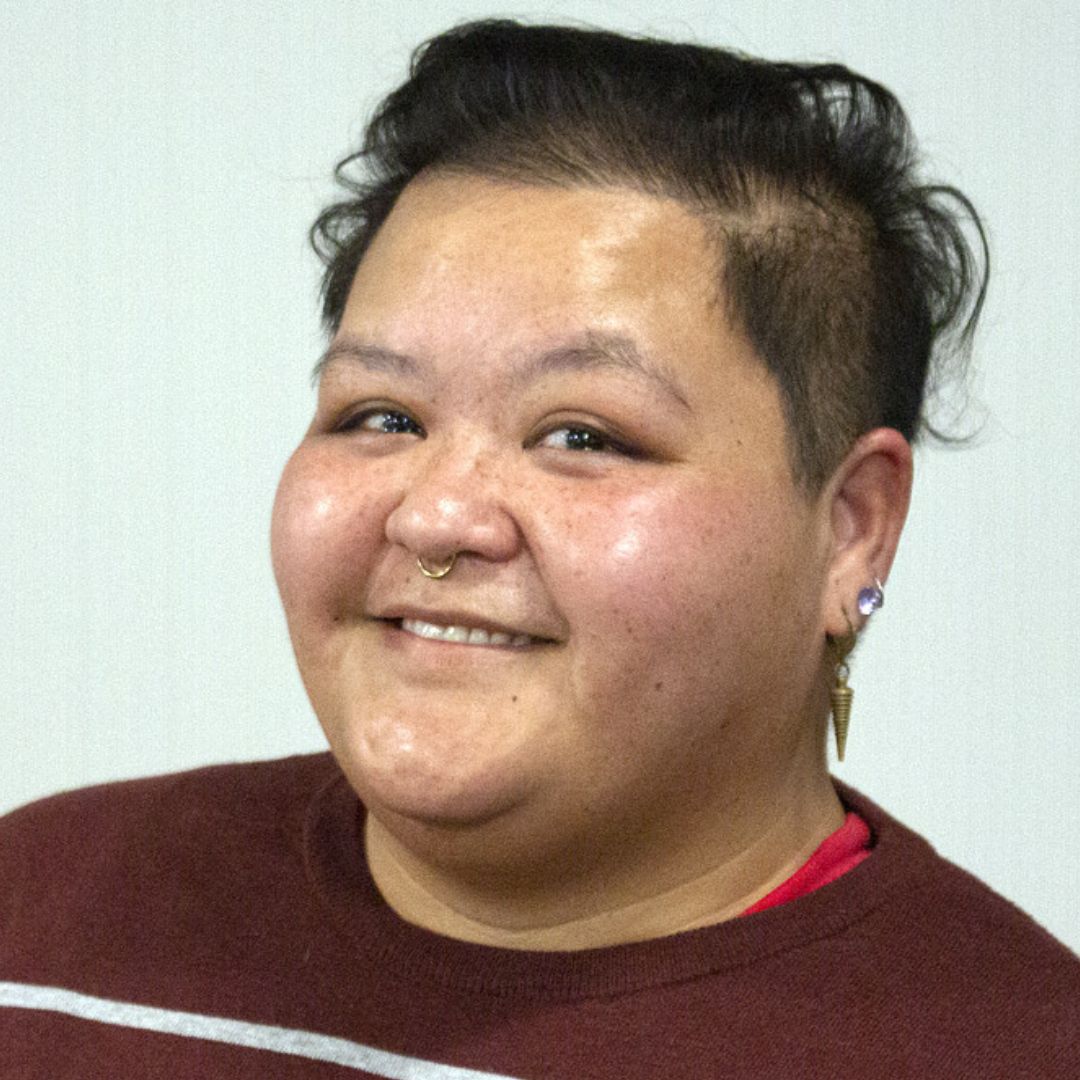
Ita Meno (They Series) With values rooted in equity, self-determination, innovation, and evolution, Ita is dedicated to fostering positive experiences and accessible municipal government. Ita brings a background in activism, organizing, community engagement, and housing safety into the world of Public Power, Energy Efficiency and Sustainability. They are determined to honor the relevance and importance of equity being woven into the core values of government in ways that amplify marginalized voices and challenge systemic injustices. Ita is a firm believer in collective responsibility and works collaboratively to build awareness and promote empathy. Ita can often be seen biking around town in bright colors, singing off key, talking loudly, interrupting hurtful remarks, and breaking up fights.
Jensen Adams

Jensen Adams serves as the Sustainability Manager in the City of Kansas City, Missouri, City Manager’s Office, where he leads an implementation team for the 2022 Kansas City Climate Protection and Resiliency Plan. Previously, Jensen chartered and managed offices for sustainability with the Kansas City Public Schools and the Kansas City Public Library. He began his career as a heating and cooling technician and made the leap into public service with the launch of a community-based organization trade ally network that became integral to regional energy utility and government-funded program implementation for transformative energy efficiency in homes and buildings. Jensen returned to school as a non-traditional student, earning undergraduate degrees in geography, urban studies, and environmental studies, and a masters of public administration while garnering recognition and support from the Morris and Stewart Udall Foundation and the Henry and Marion Bloch Family Foundation.
Katherine “Swid” Swidarski
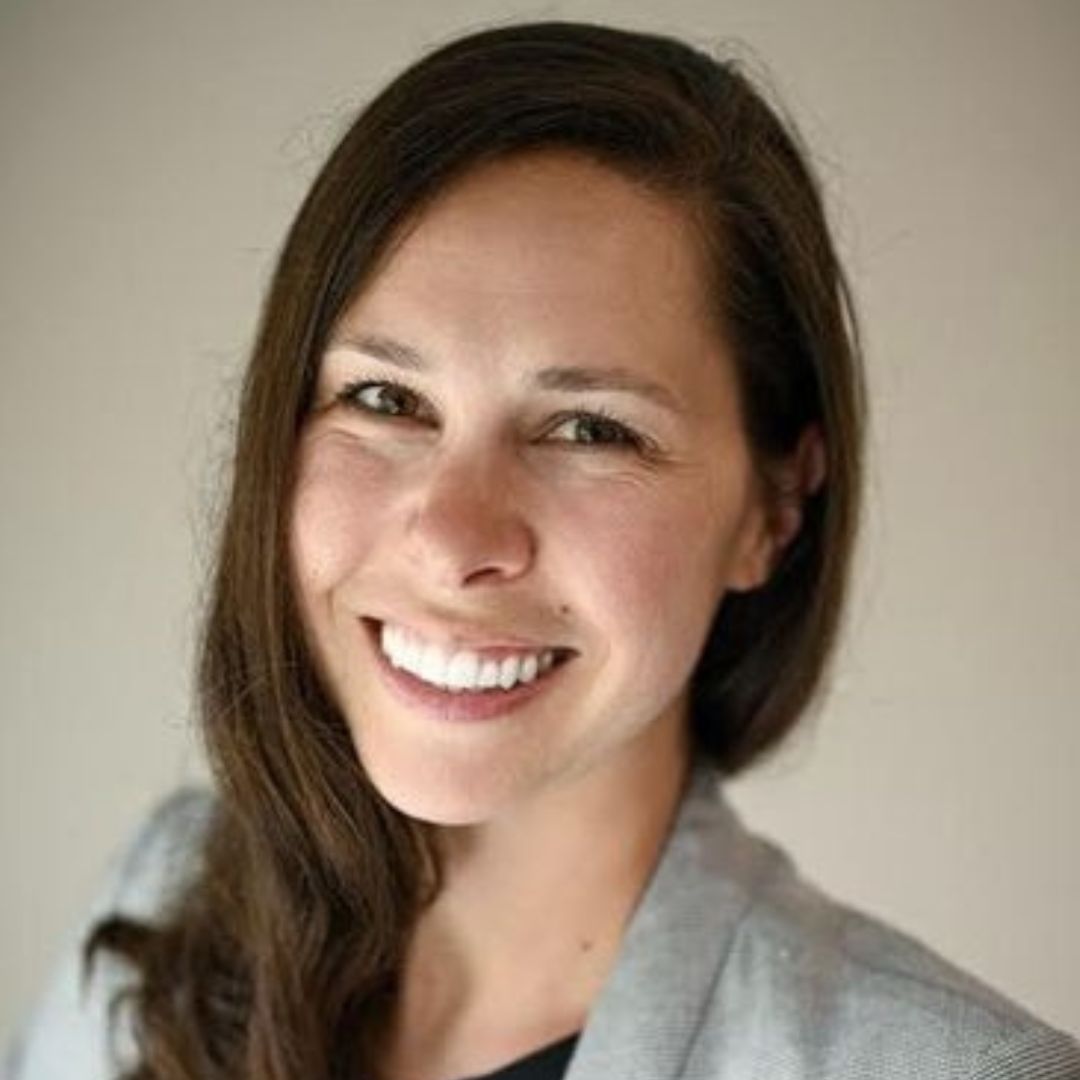
Katherine “Swid” Swidarski serves as the Vision Zero Coordinator for the City of Columbus, Ohio where she leads implementation of the city’s action plan to end traffic violence. In her former role as Safe Routes to School Coordinator, Swid oversaw chronic disease prevention programs citywide, assisted with an updated district-wide School Travel Plan, and collaborated closely with Columbus City Schools to improve personal and traffic safety for students. Prior to moving to Columbus, Swid supported inclusive transportation and Vision Zero work in Miami-Dade County, Florida and San Francisco, California. Swid holds a PhD in public health from The Ohio State University with a specialization in city and regional planning.
Korin Tangtrakul
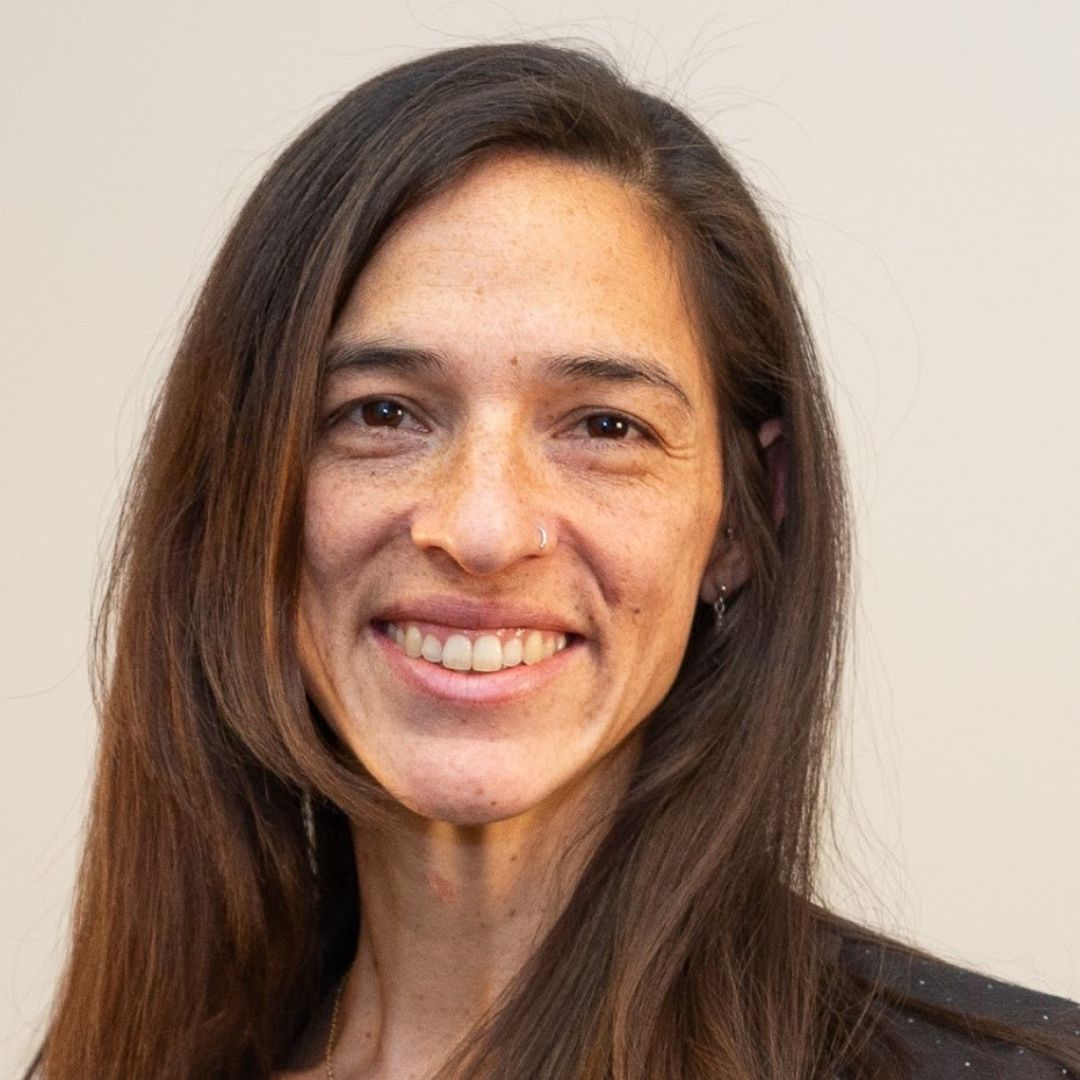
Korin Tangtrakul is the Senior Manager of Place-based Initiatives in the Office of Sustainability where she coordinates a whole-of-government approach to addressing climate risks and co-developing climate resilience strategies with environmental justice communities in Philadelphia. Prior to working for the City of Philadelphia, Korin was the Sustainability Manager for the Sustainable Water Resource Engineering Lab at Drexel University, where she developed partnerships to further community-engaged research and worked on a university-wide initiative to elevate climate and sustainability programs, courses, and research. Her areas of expertise and interest are in community-based planning, environmental justice, climate change, green stormwater infrastructure, and GIS. Korin received an MS in urban environmental systems management from Pratt Institute and a bachelor’s degree in environmental studies and geography and urban studies from Temple University.
Lona Hankins
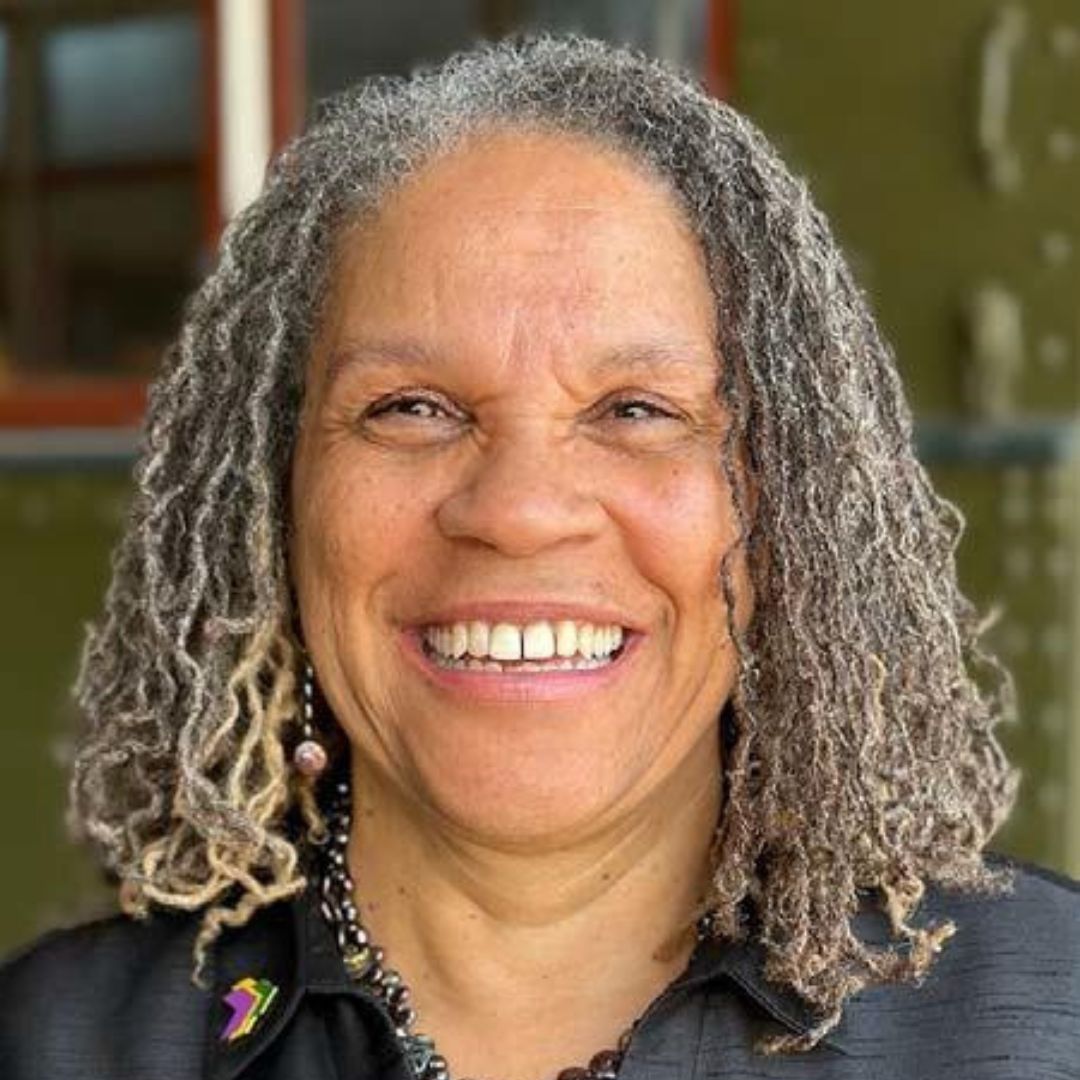
Lona Hankins serves as the Authority’s chief of infrastructure and long-term planning. Lona oversees the development and execution of capital assets and the implementation of infrastructure improvement projects across all modes of the Authority’s transit operations and administration. In her over 30 years of work experience in the industrial and public sector, Lona has spearheaded the rebuilding of New Orleans schools during the aftermath of Hurricane Katrina. Previously serving as the director of major capital projects for the Recovery School District (RSD), Lona completed over $2 billion in projects across 40 school campuses for the children of New Orleans.
Ocean Luo

Ocean Luo, an urban planner with over 16 years in the field, works at the Massachusetts Bay Transportation Authority (MBTA). His work, which involves collaboration with developers and government agencies, focuses on using transit systems to improve community assets, social equity, and health. Ocean has worked in the United States, Canada, and China on projects related to real estate, Indigenous community planning, climate adaptation, and neighborhood revitalization, all while prioritizing social equity and environmental justice. He is currently pursuing a master of public health at Brown University to further integrate urban planning with public health, particularly to tackle equity and climate change. Ocean believes that public health should be at the center of urban planning. He contends that the most important urban planning practice for the next 30 years is the integration of transit-oriented development (TOD) with affordable housing, viewing urban planning as a narrative of love and commitment to bettering communities.
Rochelle Brahalla

Rochelle Brahalla is the Chief of Staff of Transit Development in the Transportation Planning and Management Division of NYC DOT. Prior to rejoining NYC DOT, she worked for WSP as the Equity Manager for Portland, Oregon’s emerging congestion pricing program, managing various equity policy initiatives and leading strategy for Oregon DOT’s external-facing equity advisory committee. In her current role, she leads various strategic program initiatives, manages a $10+M budget and supports a team of planners and policy experts to advance transit-supportive street infrastructure in NYC. Rochelle holds a BS in landscape architecture and urban design from Cornell University and an MPA from New York University. As a Black, bi-racial, Mauritanian-American from rural Upstate New York, Rochelle holds a deep cultural empathy that empowers her to bring communities together to advance equitable public infrastructure projects.
Siboney Díaz Sánchez

Siboney Díaz Sánchez is the Community Engagement Administrator for the City of San Antonio's Neighborhood and Housing Services Department and a licensed architect in the State of Texas. She insists creative fields are mechanisms for social change and is committed to prioritizing communities in design and policy processes. In her current role she addresses housing access, stability, and information access to San Antonio’s first affordable housing bond. Prior to returning to Texas, Siboney was an Enterprise Rose Fellow at Opportunities Communities in the Boston area and worked for two non-profit community development corporations on affordable housing, public spaces, and resident-informed design standards. She has organized with Design As Protest and taught Community Practice at The Boston Architectural College. Siboney served as a district 1 zoning commissioner in San Antonio, on the National Organization of Minority of Architects Empowerment Committee, and as a board member for the Association for Community Design and Boston Society of Architects. Siboney holds a bachelor of architecture degree from Cornell University.
